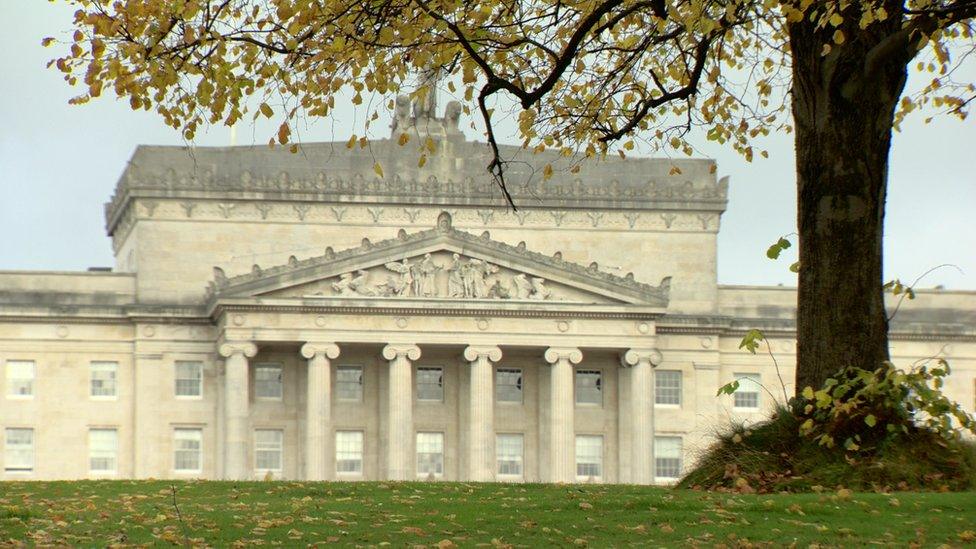Stormont: £730k flags body 'not value for money'
- Published
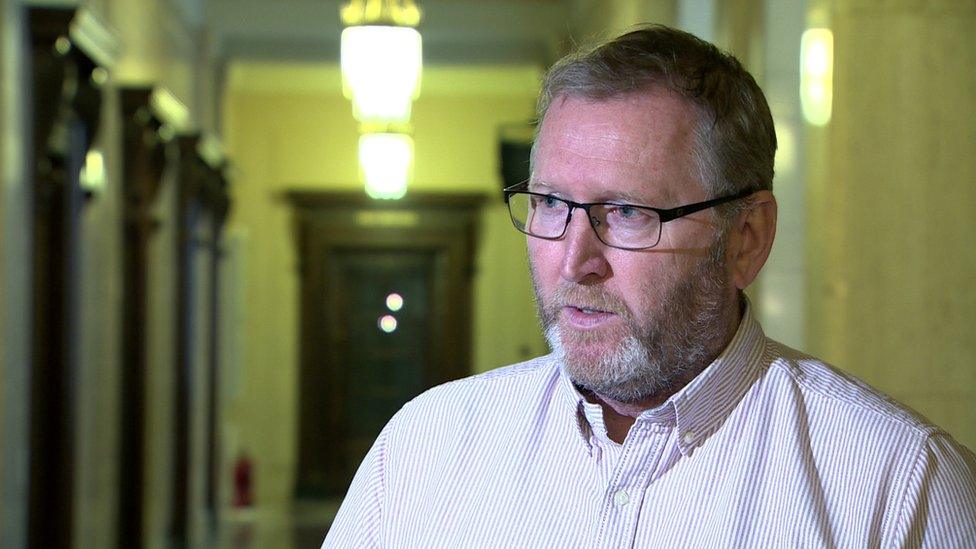
Doug Beattie said momentum of the commission stalled after the power-sharing institutions at Stormont disintegrated
A member of the Stormont body set up to deal with flags and identity in Northern Ireland has said it is not delivering value for money.
The Commission on Flags, Identity, Culture and Tradition (FICT) was created in June 2016.
BBC News NI has learned FICT has not met for almost six months, but has cost more than £730,000 so far.
The UUP's panel member, Doug Beattie, said it was "deeply disappointing" a report had not been produced yet.
The commission was supposed to release its findings by December 2017 - but nearly a year and a half later, it still has not.
The Executive Office said publishing arrangements would be determined "once a report has been agreed".
'Political will disappeared'
There has not been a plenary meeting of the commission since December 2018, with the next one due to take place in mid-June.
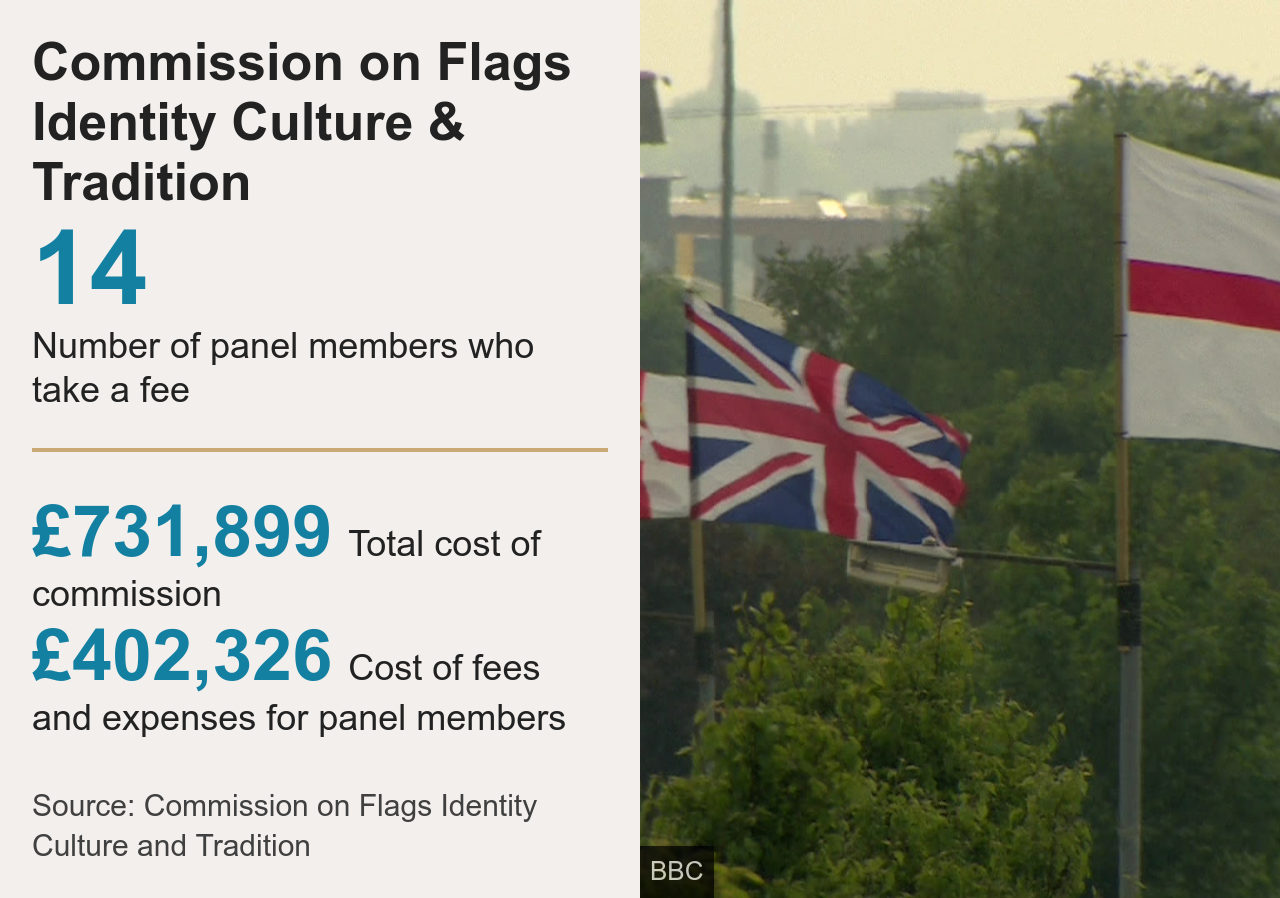
Ulster Unionist Party (UUP) MLA Doug Beattie said FICT was making "great progress" until power-sharing collapsed at Stormont in January 2017.
"We couldn't move forward any more because we didn't have full party buy-in from all of the five main political parties," he said.
"All of a sudden with the collapse of Stormont, political will disappeared."
Mr Beattie said he believed there was still a place for the commission, but added: "It's not delivering for money - it hasn't produced anything.
"If it's not going to do its job, it should be dissolved because we shouldn't be wasting taxpayers' money - but at the same time, I think FICT has got a piece of work that could help move this country forward."
Last year, BBC News NI revealed that several Stormont parties wanted FICT to be suspended until devolution was restored.
How much has the commission cost?
The Executive Office told BBC News NI that the total cost for the commission, from when it was set up on 20 June 2016 to 31 March 2019, was £731,899.
More than half - £402,326 - has been paid in that period to 14 of the panel's members for remuneration and expenses.
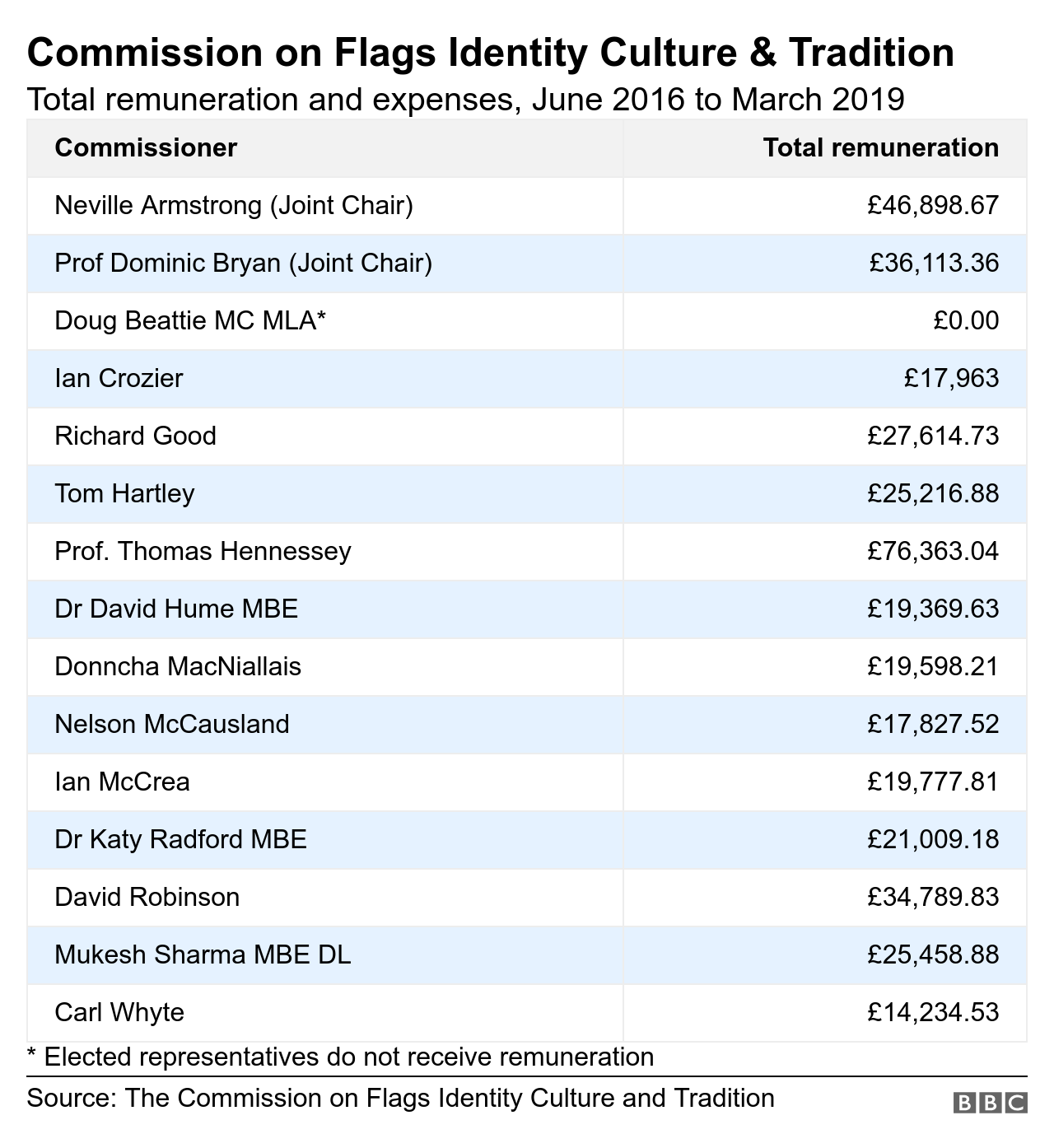
A breakdown of those figures is available here, external.
The only member who does not receive any money is Doug Beattie, as he is an elected representative.
Why was the commission set up?
The commission was announced as part of the Fresh Start Agreement, negotiated by the Stormont parties in November 2015.
It was supposed to help the parties reach consensus on contentious issues surrounding flags, emblems and identity in Northern Ireland, and produce recommendations for the executive to take forward.
It began its work in June 2016, after its make-up was announced by the then first and deputy first ministers, external.
Co-chaired by Queen's University academic Dr Dominic Bryan and community relations worker Neville Armstrong, the commission has 15 members.
Seven members were appointed by political parties and eight were drawn from a recruitment process.
Five of those on the panel have links to unionism - it also includes a former Alliance Party special adviser, a former SDLP adviser and a former Sinn Féin councillor.
When is it likely to publish its report?
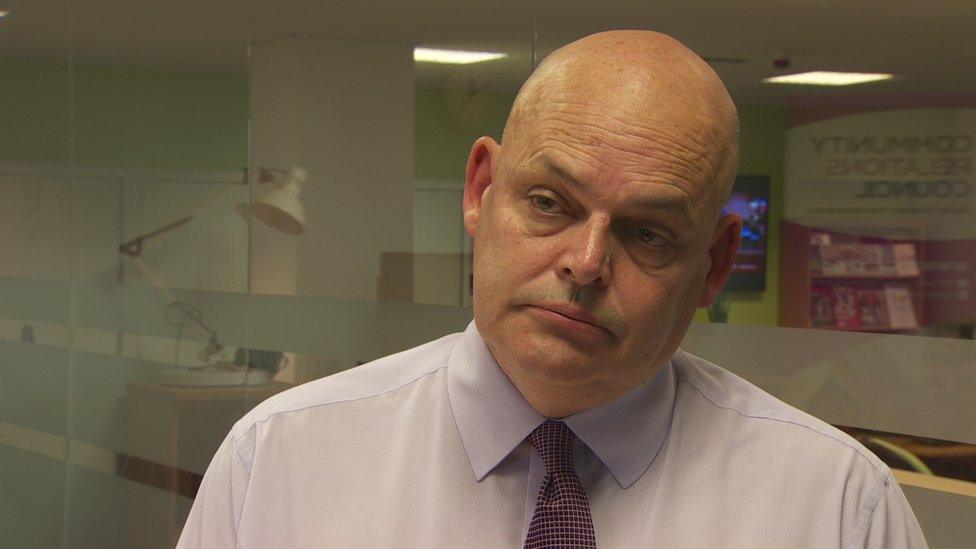
Peter Osborne's term as chairman of the Community Relations Council has recently ended
The Executive Office said publishing arrangements would be determined "once a report is agreed".
It is not clear if a final report would have to go to executive ministers first - something that could not happen until Stormont is restored.
But a former chairman of the Community Relations Council has called on the commission to publish its work now.
Peter Osborne, who is also an ex-chairman of the Parades Commission, said it needed to become a "public debate".
'Take it forward'
"It's really important we hear where things are at, what they've agreed or not agreed - and then everyone else in civil society, including political leaders, can take it forward," he said.
"If you do that, then you don't leave space on this to be filled by other commentators who maybe don't have the best interests of all communities at heart."
But Mr Beattie said that would be "detrimental" to the commission's progress.
"I've seen astonishingly innovative ideas from some of the members and for someone to dump that into the public domain now would just undermine the trust that we have."
He added that the best way forward was to urge the political parties to "re-empower FICT" to reach a final agreement, and suggested its recommendations on language and identity could even be used to help break the Stormont deadlock.
- Published3 June 2018
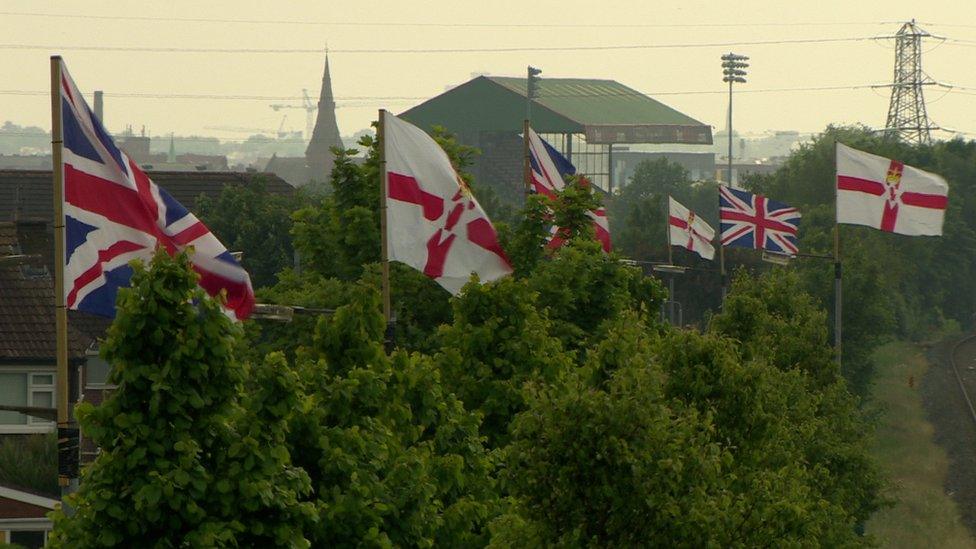
- Published2 June 2018
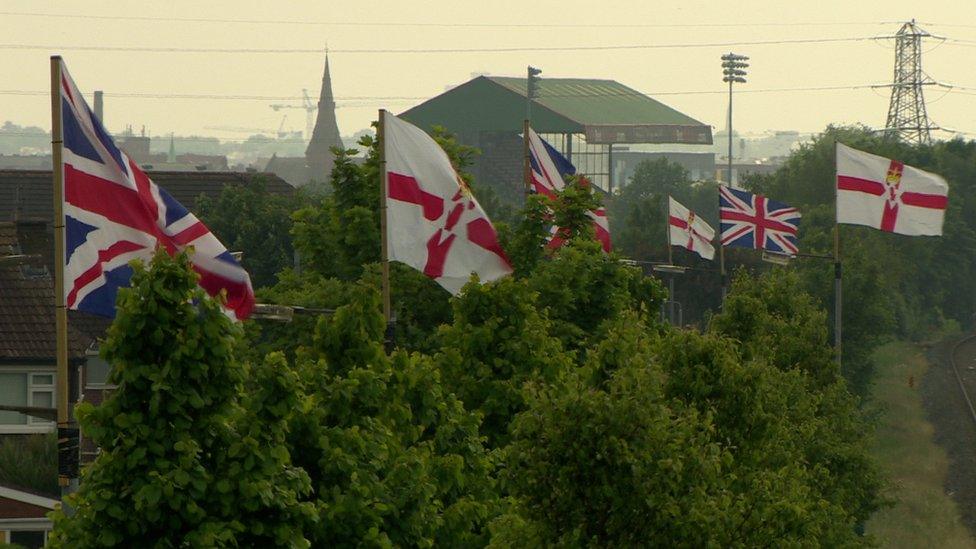
- Published2 November 2017
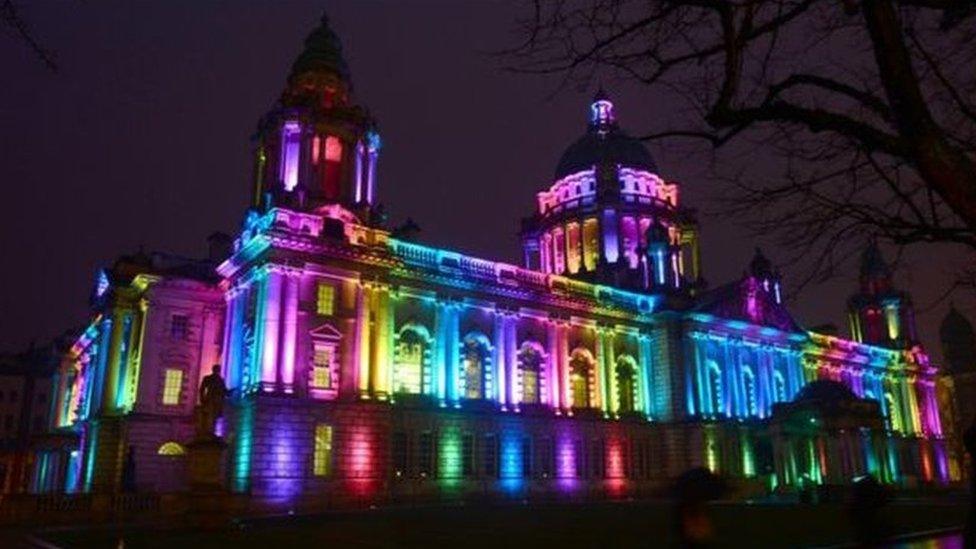
- Published1 September 2017
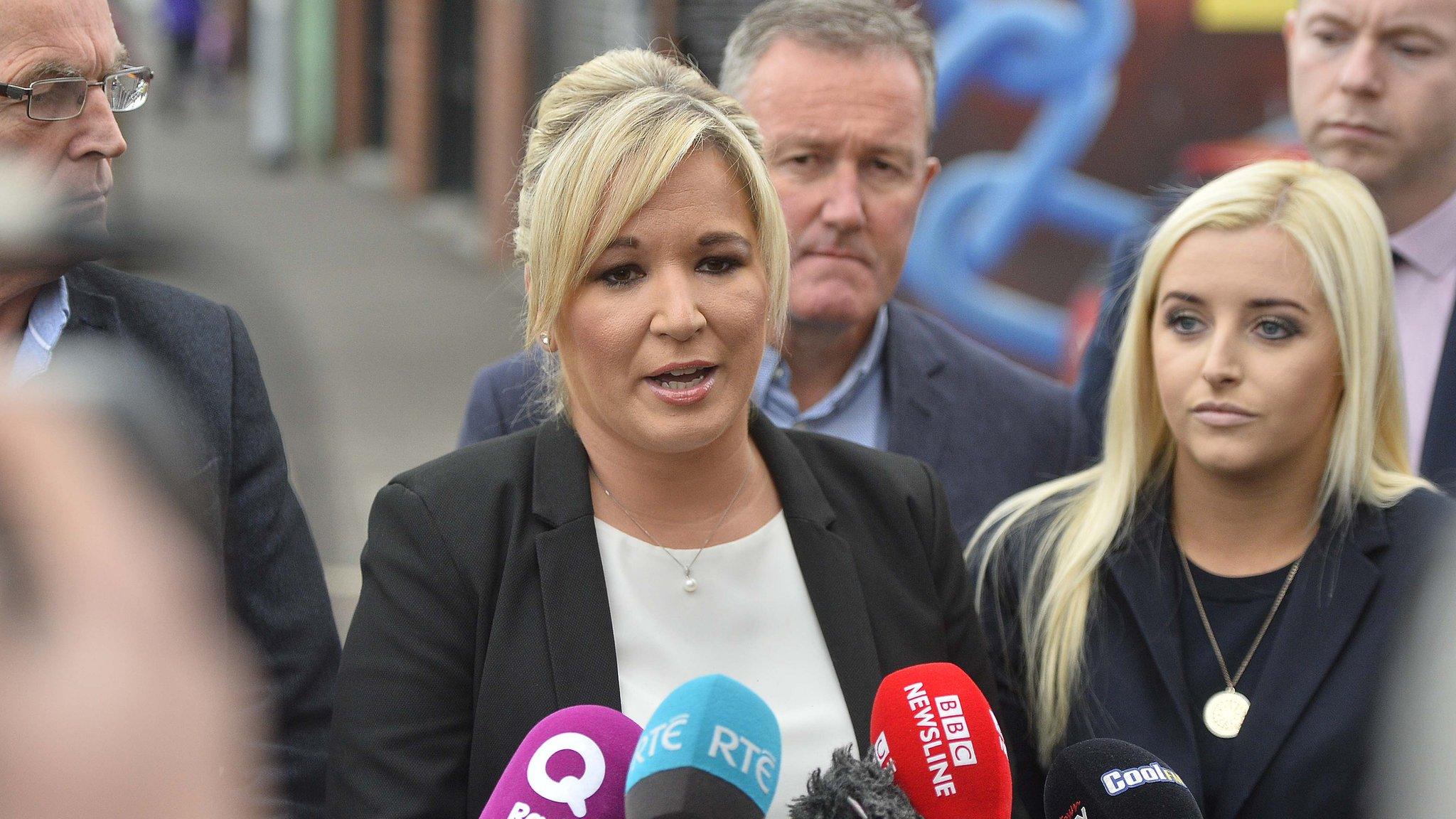
- Published21 June 2016
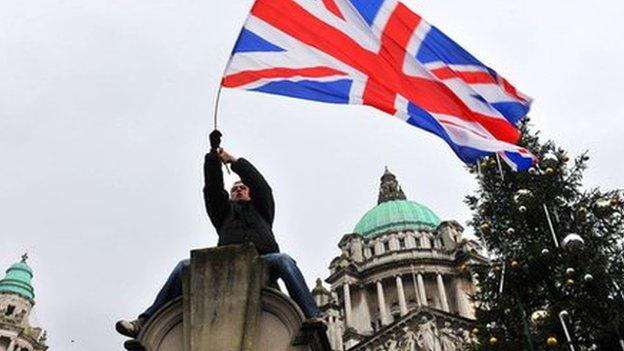
- Published18 November 2015
